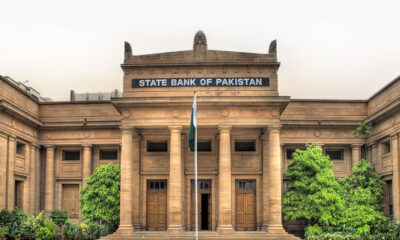- If PARCO, NRL jointly refine Russian oil then benefit could go up to Rs3 per litre.
- Russia also squeezed discount to $5 per barrel at Platt price.
- No company except PRL ready to refine, say authorities.
ISLAMABAD: The Petroleum Division briefed caretaker Prime Minister Anwaar-ul-Haq Kakar on Russian crude’s impact on petroleum prices, saying that the maximum benefit is quite nominal of Re1 per litre of petrol and diesel, The News reported Friday.
The division added that importing Russian crude involved two risks, including 30-36 days of transportation and 60% production of furnace oil that has to be exported at the rate of 75% of crude with a 25% loss.
No company except Pakistan Refinery Limited (PRL) is ready to refine the Russian oil, and if PRL is obliged to keep refining Russian oil, only Re1 relief can be passed on to consumers per litre of petrol, and diesel price.
The prime minister was also told that if PARCO and NRL jointly refine the Russian oil, the benefit could go up to Rs3 per litre again depending upon the volume of the Russian crude.
PARCO, being comparatively the latest refinery and better plants will help increase the yields of Russian crude and reduce the production of furnace oil to some extent. However, PARCO and NRL have refused to refine Russian oil.
Russia has also squeezed the discount to $5 per barrel at Platt price against $15-$20 per barrel, the PM was briefed.
Brent price stands at $87 per barrel and against it, Russian crude has an existing price of $73 per barrel. The cost of Russian oil has crossed the cap price of $60 per barrel imposed by G7 countries and the import of Russian oil above the cap price will trigger problems on payments issue.
The decades-old PRL refined the heavy Russian crude URAL in almost three months by blending it with crude from the Middle East and local crude. The refinery adopted the strategy of refining by blending 45% URAL, 45% crude from the Middle East, and 10% local crude.
PRL is too old as it was incorporated in Pakistan as a Public Limited Company in May 1960. PRL is a hydro-skimming refinery designed to process various imported and local crude oil to meet the strategic and domestic fuel requirements of the country.
The refinery has a capacity to process approximately 50,000 barrels per day of crude oil into a variety of distilled petroleum products such as motor gasoline, high-speed diesel, furnace oil, jet fuels, kerosene oil, and naphtha. Out of 100,000 URAL, PRL has produced 10% Mogas (petrol) 60% furnace oil and 10-15% high-speed diesel, and the remaining 15% other items.
The official said that the furnace oil out of URAL has been produced 50% with high viscosity at 700cSt and PRL has to mix 10%v diesel in it to decrease its viscosity at 180 cSt so that it could flow. This is how the furnace oil production at 180 cSt escalates to 60% and diesel production is reduced by 10%. The net diesel production stands at 10-15% out of URAL. This means that out of 100,000 tonnes of URAL crude, the decades-old PRL has to export 60% URAL crude in the shape of furnace oil at 75% of crude with a 25% loss.

 Latest News3 days ago
Latest News3 days ago
 Latest News3 days ago
Latest News3 days ago
 Latest News3 days ago
Latest News3 days ago
 Latest News3 days ago
Latest News3 days ago
 Latest News3 days ago
Latest News3 days ago
 Latest News3 days ago
Latest News3 days ago
 Latest News3 days ago
Latest News3 days ago
 Latest News3 days ago
Latest News3 days ago























